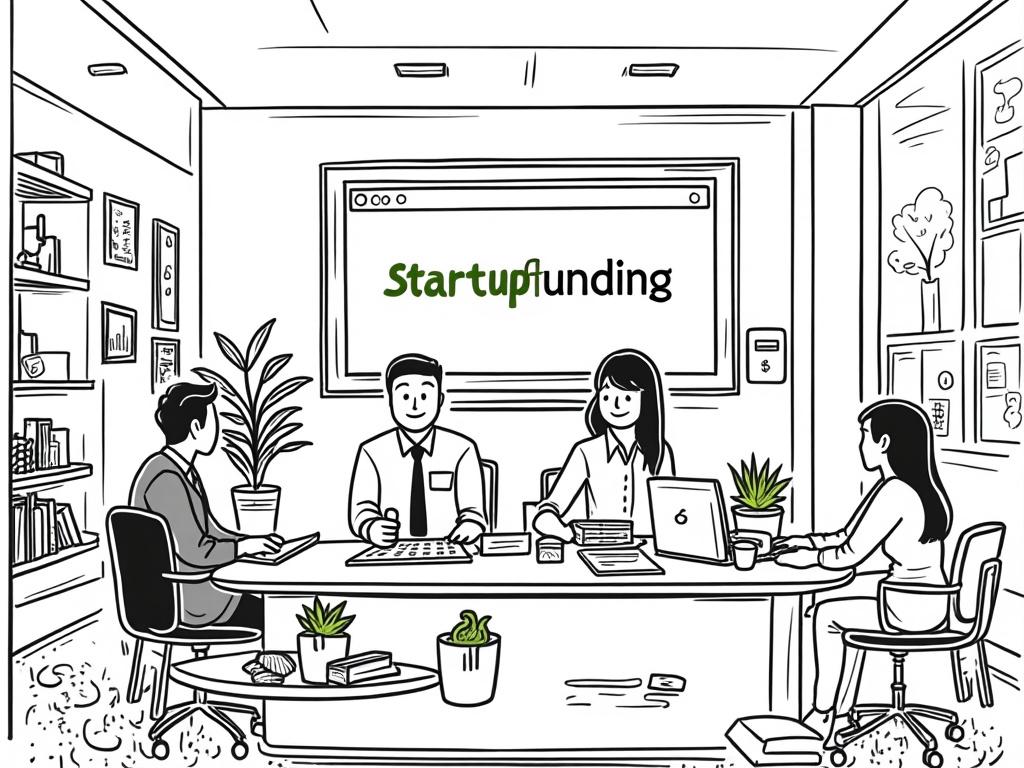
Technology Startups in Greece: A Complete Guide to Funding Opportunities
Reading time: 12 minutes
Ever wondered why Athens is becoming the next hotspot for tech entrepreneurs? With government incentives, EU funding programs, and a growing ecosystem of accelerators, Greece is transforming from economic recovery to startup innovation hub. Let’s navigate the funding landscape that’s fueling this Mediterranean tech revolution.
Table of Contents
- Current Greek Startup Landscape
- Government Funding Programs
- European Union Support Mechanisms
- Private Investment and VC Landscape
- Practical Funding Strategies
- Success Stories and Case Studies
- Your Funding Roadmap Forward
- Frequently Asked Questions
Current Greek Startup Landscape: From Crisis to Innovation
Greece’s startup ecosystem has experienced remarkable growth, with tech companies raising over €150 million in 2023 alone—a 340% increase from just five years ago. This transformation isn’t accidental; it’s the result of strategic policy changes, improved digital infrastructure, and a generation of entrepreneurs determined to rebuild their nation’s economy through innovation.
The numbers tell a compelling story: Athens now hosts over 400 active startups, with 60% focusing on fintech, e-commerce, and SaaS solutions. The government’s commitment to digital transformation, combined with Greece’s strategic location as a gateway between Europe, Asia, and Africa, creates unique opportunities for tech entrepreneurs.
Key Market Indicators
Greek Tech Startup Funding Growth (2019-2023)
This growth trajectory reflects not just increased investor confidence, but also the maturation of Greek startups from local solutions to internationally scalable businesses. Many entrepreneurs are also exploring broader investment opportunities, including buying real estate in greece as part of their long-term business strategy and wealth diversification.
Government Funding Programs: Your Gateway to Public Support
The Greek government has launched several ambitious programs designed to transform the country into a regional innovation hub. These aren’t just token gestures—they represent serious financial commitments totaling over €2 billion through 2027.
Digital Transformation Program
The flagship initiative, Digital Greece 2025, allocates €1.2 billion specifically for tech startups and digital infrastructure. Here’s what makes this program unique:
- Grant amounts: €50,000 to €500,000 per startup
- Equity requirement: Zero government equity stake
- Repayment terms: Interest-free loans with 5-year grace periods
- Target sectors: AI, blockchain, clean tech, and digital health
Pro tip: Applications open quarterly, but successful applicants typically submit 6-8 weeks before deadlines with comprehensive business plans and clear market validation evidence.
Regional Development Funds
Lesser-known but equally valuable are Greece’s regional programs. The Thessaloniki Innovation District offers additional incentives for startups willing to establish operations outside Athens, including reduced corporate tax rates (15% vs. 22%) and subsidized office space for up to three years.
| Program | Funding Range | Equity Required | Sector Focus | Application Deadline |
|---|---|---|---|---|
| Digital Greece 2025 | €50K – €500K | 0% | All Tech | Quarterly |
| Green Innovation Fund | €25K – €300K | 0% | Clean Tech | Bi-annual |
| Regional Development | €15K – €200K | 0% | Location-specific | Rolling |
| Export Development | €10K – €150K | 0% | Export-ready | Monthly |
| Women Entrepreneurs | €20K – €250K | 0% | All sectors | Bi-annual |
European Union Support Mechanisms: Accessing Continental Resources
As an EU member, Greek startups have unprecedented access to European funding programs. The key is understanding which programs align with your specific business model and growth stage.
Horizon Europe Program
Horizon Europe, the EU’s €95.5 billion research and innovation program, offers substantial opportunities for Greek tech startups. Unlike traditional grants, these programs often fund 70-100% of project costs and don’t require equity stakes.
Recent success story: CyberSafe Solutions, an Athens-based cybersecurity startup, secured €1.8 million through Horizon Europe’s Digital Europe Programme. Their key to success? Partnering with universities in three EU countries to demonstrate cross-border innovation impact.
InvestEU Program
The InvestEU program guarantees up to €372 billion in public and private investment across Europe. For Greek startups, this translates to easier access to bank loans and venture capital, as EU guarantees reduce lender risk.
Practical Application Strategy:
- Research Phase: Identify which EU programs match your sector and development stage
- Partnership Development: Most EU grants favor multi-country consortiums
- Compliance Preparation: EU reporting requirements are extensive but manageable with proper planning
- Long-term Planning: EU funding cycles are typically 3-7 years, perfect for sustainable growth
Private Investment and VC Landscape: Where the Real Money Flows
While government funding provides crucial early-stage support, private investment drives scalable growth. Greece’s VC landscape has evolved dramatically, with several funds now actively seeking Greek startups.
Leading Greek VC Funds
Marathon Venture Capital leads the pack with over €200 million under management, focusing on B2B SaaS and fintech startups. Their portfolio companies achieve average annual growth rates of 180%, significantly above European averages.
Venture Friends takes a different approach, offering not just capital but comprehensive business development support. Portfolio company Workable (HR tech) raised $50 million and now serves over 20,000 companies globally—a testament to Greek startups’ international potential.
International Investment Interest
Foreign investors are increasingly attracted to Greek startups due to:
- Cost Efficiency: Development costs 40-60% lower than Western Europe
- Talent Pool: Highly educated workforce with strong English proficiency
- Government Support: Stable, business-friendly policies
- Strategic Location: Gateway to Southeast Europe and Middle East markets
Practical Funding Strategies: Your Action Plan
Success in Greek startup funding isn’t about luck—it’s about strategic preparation and understanding the ecosystem’s unique characteristics.
Stage-Appropriate Funding Approach
Pre-Seed (€0-50K): Start with government grants and regional programs. These don’t require equity and provide runway for product development and market validation.
Seed (€50K-500K): Combine remaining government programs with angel investors and early-stage VCs. Greek angel networks are particularly active in fintech and e-commerce.
Series A (€500K-5M): Target established Greek VCs and international funds with Greek interests. EU programs become more relevant at this stage.
Common Pitfalls and How to Avoid Them
Pitfall #1: Underestimating Documentation Requirements
Greek and EU funding programs require extensive documentation. Start preparing financial projections, market analysis, and compliance documents at least 3 months before applications.
Pitfall #2: Ignoring Local Network Effects
The Greek startup ecosystem is relationship-driven. Attend events like Found.ation and Startup Greece conferences. Personal connections often matter more than perfect pitch decks.
Pitfall #3: Focusing Only on Domestic Market
Investors want to see international scalability from day one. Even if you start locally, demonstrate clear expansion strategies to EU and global markets.
Success Stories and Case Studies: Learning from Greek Tech Pioneers
Case Study 1: Accusonus (Audio Technology)
Founded in 2011, Accusonus developed AI-powered audio repair software. Their funding journey exemplifies strategic diversification:
- 2012: €50,000 from Greek government innovation grants
- 2015: €300,000 seed round from Greek VCs
- 2018: €2.1 million Series A from international investors
- 2021: Acquired by Meta for estimated €100+ million
Key Lessons: They maintained Greek operations while targeting global markets, leveraged government funding for R&D, and built strategic partnerships with major tech companies early.
Case Study 2: Beat (Ride-Sharing Platform)
Beat started as a Greek taxi app and became the leading ride-sharing platform in Latin America. Their funding story shows how Greek startups can compete globally:
- 2011: €100,000 friends and family round
- 2014: €15 million Series A led by international VCs
- 2017: €30 million Series B for Latin American expansion
- 2020: Acquired by Didi Chuxing for €100+ million
Strategic Insight: Beat succeeded by focusing on underserved markets (Latin America) rather than competing directly with Uber in saturated Western markets.
Your Funding Roadmap Forward
The Greek startup funding landscape offers unprecedented opportunities, but success requires strategic navigation and patience. Here’s your practical roadmap:
Immediate Action Steps (Next 30 Days)
- Ecosystem Mapping: Identify 5-7 relevant funding programs matching your sector and stage
- Network Building: Join Startup Greece, Found.ation, and relevant industry associations
- Documentation Preparation: Begin compiling business plans, financial projections, and legal documents
- Market Validation: Gather concrete evidence of market demand and customer traction
Medium-Term Strategy (3-6 Months)
- Application Submission: Apply to 2-3 government programs simultaneously
- Investor Outreach: Begin conversations with relevant VCs and angel investors
- Partnership Development: Establish relationships for potential EU consortium projects
- International Positioning: Develop clear global expansion strategy
Long-Term Vision (12+ Months)
Position your startup for sustainable growth by diversifying funding sources and maintaining strategic flexibility. The most successful Greek startups combine government support, private investment, and EU programs to create robust financial foundations.
As Greece continues its digital transformation, the funding ecosystem will only become more sophisticated and internationally connected. The question isn’t whether opportunities exist—it’s whether you’re prepared to seize them strategically.
What’s your next move in the Greek startup funding landscape? The ecosystem is ready for innovative entrepreneurs who understand how to navigate both local opportunities and global ambitions.
Frequently Asked Questions
Do I need to be a Greek citizen to access government funding programs?
No, you don’t need Greek citizenship, but you must establish a legal entity in Greece and demonstrate commitment to local operations. Many programs specifically welcome international entrepreneurs who bring innovation and job creation to Greece. EU citizens have additional advantages through various European programs.
How long does it typically take to receive funding from Greek government programs?
Government funding timelines vary significantly by program. Digital Greece 2025 typically takes 4-6 months from application to funding, while regional programs can be faster (2-3 months). EU programs generally require 6-12 months but offer larger amounts. Plan accordingly and apply to multiple programs simultaneously.
What are the most common reasons Greek startup funding applications get rejected?
The top three rejection reasons are: inadequate market research and validation (35% of rejections), unrealistic financial projections (28%), and insufficient demonstration of international scalability (22%). Successful applications show clear market demand, conservative yet ambitious growth plans, and specific strategies for expanding beyond Greece.

Article reviewed by Lydia Hartmann, Greenfield Development Strategist | Permits to Profitability, on June 6, 2025
